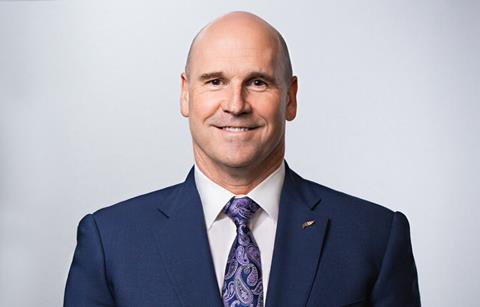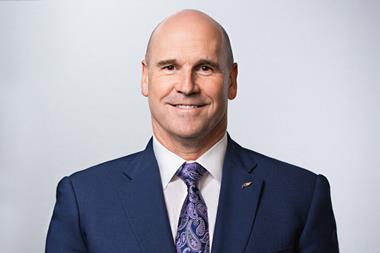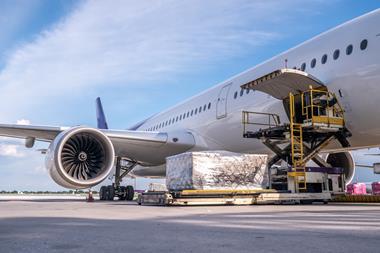
Seattle, Washington State-headquartered logistics giant Expeditors International of Washington, Inc. has announced its third-quarter 2023 financial results.
Operating income fell by 59 percent over the same quarter of 2022 to $216m as revenue fell by 50 percent to $2.2bn.
Airfreight tonnage volumes were down by 14 percent, with ocean container volumes falling by about the same percentage.
The company made $724.3m from its airfreight services in the three-month period ending September 30, down from $1.4bn in the same period of 2022.
Over the nine months that ended on September 30, it made revenue of $2.38bn, down from $4.68bn.
President and chief executive Jeffrey Musser was as sanguine as he could be about the results.
“As expected, the deceleration in demand that we have seen since the second half of 2022 continued in the comparable third quarter of 2023,” he said.
“Additionally, rates generally remained soft while capacity exceeded demand in most lanes.”
Musser attributed the downturn to evolution if not complete revolution in the operating environment. “The shipping industry has been undergoing a great unwinding of so many of the drivers that led up to the massive mismatch of supply and demand that occurred during the pandemic,” he explained.
“As a result, air and ocean capacity is now mostly plentiful and at rates that remain well below the pandemic period.”
He continued: “We have also experienced declines in the number of customs brokerage transactions we handled, even as we benefited from lower costs resulting from the gradual clearing of pandemic-related port congestion.
“In addition, shippers continue to pivot back to ocean freight to reduce costs in an uncertain economy. We have seen shippers generally move smaller volumes in a marketplace that is defined by inflation, high energy costs, an increasingly tentative consumer, and now significant and growing geopolitical uncertainty.”
Musser has major concerns about boom and bust cycles. “While we have been through many industry cycles of expansion and contraction before, the pace and extent of this unwinding has been as unpredictable and disruptive as the dislocations that drove our market to such unprecedented peaks in pricing and volumes,” he opined.
“We are meeting these conditions head-on and have been re-balancing operations for an environment that is now more like the way things were prior to the Covid disruptions.
“We have made very deliberate efforts to control costs and to carefully manage our headcount; we do not know how long this cycle of cautious demand and soft rates will last in this uncertain economic environment.
“While not all markets are soft and rates have even increased in certain lanes, we have yet to see signs of a widespread improvement in rates. Nevertheless, we are encouraged by indications that tonnage and volumes are perhaps flattening or improving.”
Musser is concerned that there is no short-term solution. “While we continue to adjust for the current environment, we also need to be prepared for the longer term when pricing and capacity conditions stabilise and demand begins to consistently trend higher,” he insisted.
Bradley Powell, senior vice president and chief financial officer at Expeditors, sees some reasons for optimism. “As the market recalibrates, we are encouraged that both tonnage and volumes increased from the June quarter, marking the first sequential quarterly growth in both tons and volumes since the third quarter of 2022.
“So long as the economic environment remains uncertain, we will continue to focus on aligning headcount and overhead expenses commensurate with our transactions and volumes.
“We remain dedicated to improving efficiency, while also preparing for the time when demand shows signs of a sustained recovery,” Powell added.
Expeditors offers services including the consolidation or forwarding of air and ocean freight, customs brokerage, vendor consolidation, cargo insurance, time-definite transportation, order management, warehousing and distribution and customised logistics solutions.










